Why You Should Be Praying the Psalms
I’m sure such folks are out there, but I’ve not personally met any Christian who hasn’t struggled with saying the same old things about the same old things in prayer. Before long, such repetitive prayer is boring. And when prayer is boring, it’s hard to pray—at least with any joy and fervency.
Note that the problem is not that we pray about the same old things. Actually, that’s normal, because our lives tend to consist pretty much of the same old things from one day to the next. Thankfully, the big things in life (our family, our church, our job, etc.) don’t change dramatically very often.
Instead the problem is that we say the same old things about the same old things. And prayers without variety eventually become words without meaning. The result of such praying is that we tend to feel like failures in prayer. We assume that, despite our devotion to Christ, love for God, and desire for a meaningful prayer life, we must be second-rate Christians because our minds wander so much in prayer.
No, the problem may not be you; rather it may be your method.
I believe that the simple, permanent, biblical solution to this almost universal problem is to stop making up your own prayers most of the time (because that results in repetitious prayer) and to pray the Bible instead.
Praying the Bible means talking to God about what comes to mind as you read the Bible. Usually you might read the passage first, then go back and pray through what you just read.
So, for instance, if today you turned to Psalm 23 in your devotional reading, after completing it you would come back to verse 1 and pray about what occurs to you as you read “The Lord is my shepherd.” You might thank the Lord for being your shepherd, ask him to shepherd you in a decision that’s before you, entreat him to cause your children to love him as their shepherd too, and pray anything else that comes to mind as you consider verse 1. Then when nothing else in those words prompts prayer, you continue by doing the same with the next line, “I shall not want.” Thus you would go through the chapter, line-by-line, until you ran out of time.
By praying in this way, you discover that you never again say the same old things about the same old things.
While you can pray through any part of the Bible, some books and chapters are much easier to pray through than others. Overall, I believe the Book of Psalms is the best place in Scripture from which to pray Scripture. In part that’s because the Psalms are the only book of the Bible inspired by God for the expressed purpose of being reflected to God. God inspired them as songs, songs for use in the worship of God.
The Psalms also work so well in prayer because there’s a psalm for every sigh of the soul. You’ll never go through anything in life in which the root emotion is not found in one or more of the Psalms. Thus the Psalms put into expression that which is looking for expression in our hearts.
Christian, here’s how you’ll benefit from praying the Psalms:
1. You’ll pray more biblically-faithful prayers. The Bible will guide your prayers, helping you to speak to God with words that have come from the mind and heart of God.
This also means you’ll be praying more in accordance with the will of God. Can you have any greater assurance that you are praying the will of God than when you are praying the Word of God?
2. You’ll be freed from the boredom of saying the same about the same old things in prayer. One way this will happen is that the psalm will prompt you to pray about things you normally wouldn’t think to pray. You’ll find yourself praying about people and situations that you’d never think to put on a prayer list.
Another way is that even though you also continue to pray about the same things, (family, church, job, etc.), you’ll pray about them in new ways. Instead of saying, “Lord, please bless my family,” the text will guide you to pray things such as, “Lord, please be a shield around my family today” if you are praying through Psalm 3:3, for example.
3. You’ll pray more God-centered prayers. When you use a God-focused guide like the psalms to prompt your prayers, you’ll pray less-selfishly and with more attention to the ways, the will, and the attributes of God.
Prayer becomes less about what you want God to do for you (though that is always a part of biblical praying) and more about the concerns of God and his kingdom.
4. You’ll enjoy more focus in prayer. When you say the same old things in prayer every day, it’s easy for your mind to wander. You find yourself praying auto-pilot prayer—repeating words without thinking about either them or the God to whom you offer them.
But when you pray the Bible your mind has a place to focus. And when your thoughts do wander, you have a place to return to—the next verse.
5. You’ll find that prayer becomes more like a real conversation with a real Person. Isn’t that what prayer should be? Prayer is talking with a Person, the Person of God himself. Prayer is not a monologue spoken in the direction of God. Yet somehow, many people assume that when they meet with the Lord he should remain silent and they should do all the talking. When we pray the psalms, though, our monologue to God becomes a conversation with God.
I’m not alluding to the perception of some spiritual impression or hearing an inner voice, imagining God saying things to us—away with that sort of mysticism. Instead, I’m referring to the Bible as the means by which God participates in the conversation, for the Bible is God speaking. God speaks in the Bible, and you respond to that in prayer. That’s why people who try this often report, “The pressure was off. I didn’t have to think about what to say next, and the whole experience just kind of flowed.”
Want to experience these benefits for yourself? How about right now? Pick a psalm, read what God says there, and talk with him about it.
Don originally wrote this post for OnFaith blog at FaithStreet.com.
To get info on Don’s book on this subject — Praying the Bible — or to order it, click here.
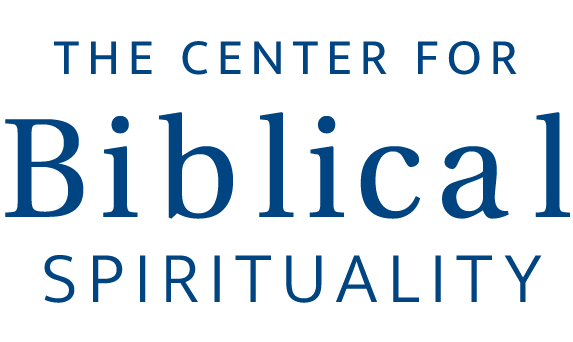

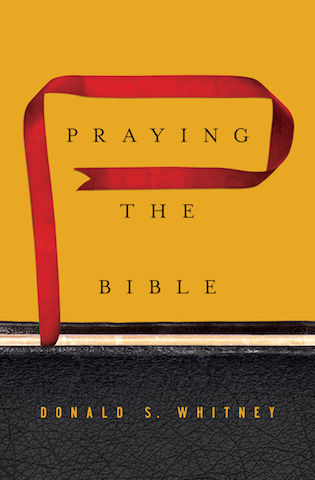
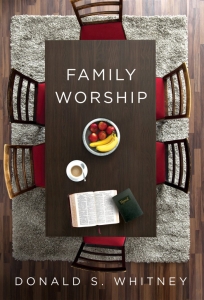
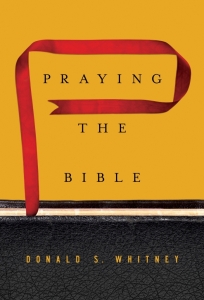
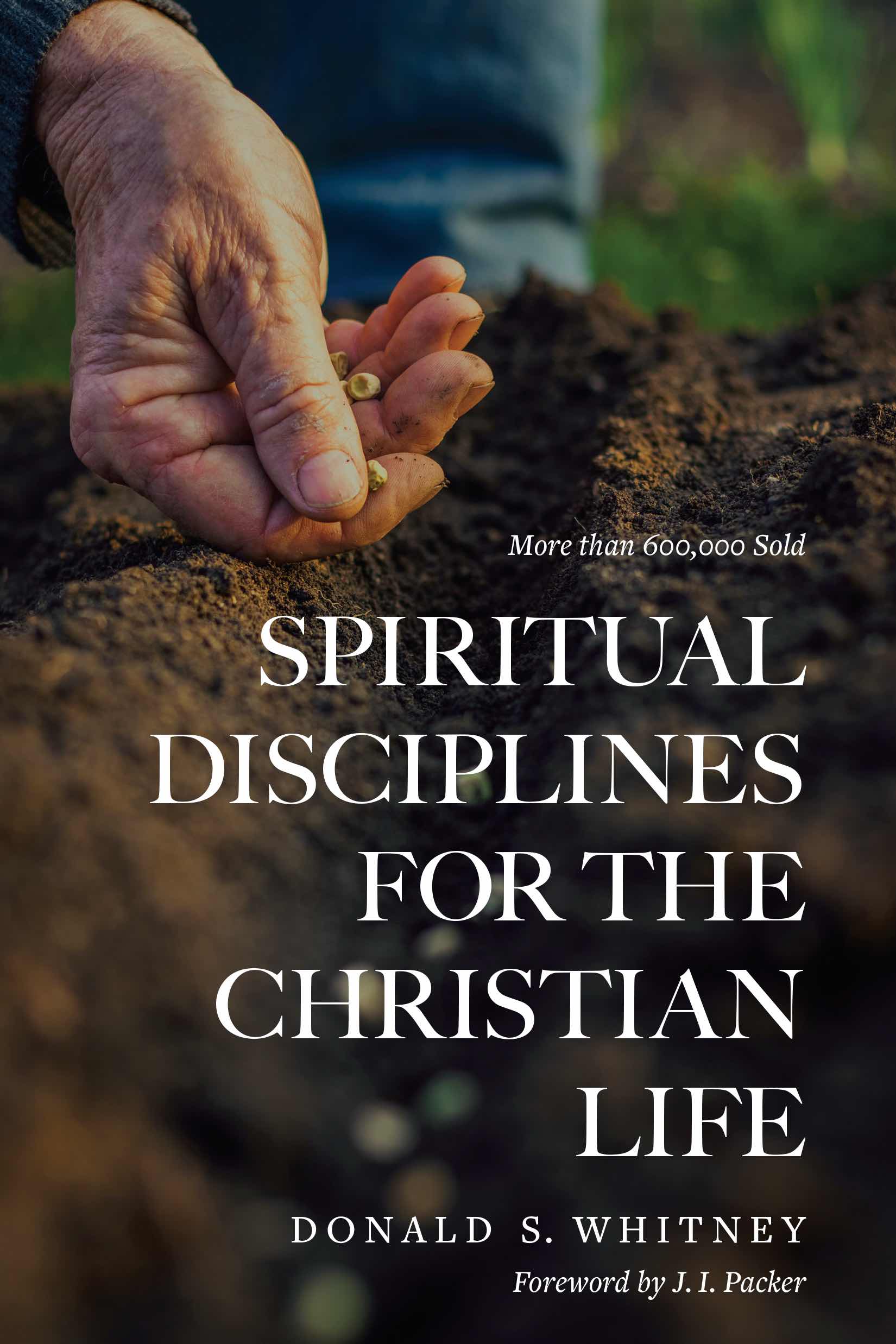
Trackbacks & Pingbacks
[…] Why You Should Be Praying the Psalms – Don Whitney (CBS) Praying the Bible means talking to God about what comes to mind as you read the Bible. Usually you might read the passage first, then go back and pray through what you just read. […]
Leave a Reply
Want to join the discussion?Feel free to contribute!